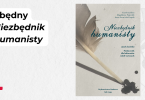After attending the Schola Aestiva Posnaniensis MMXIX I wanted to put my limited ancient Greek language skills to some use and write something. It turned out to be great experience.
Firstly, it was a perfect revision of the things I’d learnt at the summer school. I had to go a few time through my notes to make sure what word to use or what grammar form. I read and reread all the texts we read at our classes. I did it with eager mind, as I didn’t want just to memorise it, I wanted to use it in my own creation!
Secondly, I used the Internet resources a few times to check for some words or grammar stuff, like accents. That struggle gave me new experience and brought new words to my personal ancient Greek vocabulary.
Finally, my teacher (the awesome Roberto Salazar!) not only corrected my mistakes but gave extensive feedback on what and why he changed. You can’t get this in the best of books. Pointing out mistakes, suggesting better versions and explaining how the language works on my own text made it all more personal and easier to understand, and hopefully remember.
Learning a classical language has been considered a very passive process for more or less three centuries. Languages, however, are primary to be used. Using them gives us better understanding of how they work, better linguistic intuition. Therefore, active usage of a language should be an important part of the learning process, even if the language itself is an ancient one, sometimes called a ‘dead’ one (I, however, strongly disagree with calling Latin or Ancient Greek ‘dead’ languages as they still speak to us).
To your amusement, hopefully, I publish my first story, a dialogue, written in Ancient Greek. It has been corrected by Roberto Salazar and he should take credit for everything that’s good and well written in the story. The mistakes are mine and mine only, and you are encouraged to go into your ‘grammar nazi’ mode in the comments, get excited with suggestions and let your linguistic and classic rage gallop through the text like one of those apocalyptic riders. Leave my words in ashes, crush my clumsy sentences and ridicule my poor graecitas. Do everything you want. There is only one condition. Write it in Latin or Ancient Greek. Praise and feedback can be left in Polish, German or English. 😉
Διάλογος μεταξὺ τοῦ Σωκράτους, τοῦ Πλάτωνος καὶ τοῦ Ἀριστοτέλους
Α· Χαῖρε! Τί ποιεῖς, ὠ Πλάτων;
Π· Γράφω, ὅτι ὁ Σωκράτης λαλεῖ. Χαίρω γὰρ γράφων.
Σ· Καλῶς ποιεῖς, ὠ Πλάτων. Καλὰ λέγω καὶ χαίρω λαλῶν. Σίγα, ὠ Ἀριστότελες καὶ ἄκουε! Ὁ Πλάτων γράφει καὶ σὺ γράφε τὸν λόγον μου.
Α· Καλῶς. Νῦν ἀκούω καὶ γράφω.
Ὁ Σωκράτης λαλεῖ περὶ τοῦ ἀνθρώπου καὶ τοῦ κόσμου. Τοῦ Σωκράτους λαλοῦντος ὁ Πλάτων καὶ ὁ Ἀριστοτέλης γράφουσιν.
Α· Ὦ Σώκρατες, σπεῦδε βραδέως. Ταχέως γὰρ λαλεῖς.
Σ· Οὐ ταχέως λαλῶ. Σὺ βραδέως γράφεις. Οὔκ εἶ ὁ μαθητὴς ὁ καλός. Κολάζω σε.
Α· Ἀλλ`οὐκ ἐχω ταχέως γράφειν!
Ὁ Σωκράτης οὐκ ακούει ἀλλὰ κολάζει τὸν Ἀριστοτέλη.
ἡ φονή· Τί ποιεῖς ὠ Σώκρατες; Διὰ τί τὸν Ἀριστοτέλης κρούειςς;
Σ· Τούς μαθητάς κροὺω οὐκ ἀκούοντας.
Α· Πόποι! Κακῶς λέγεις. Σου λαλοῦντος ἀκούω. Τί λέγειςς, ὠ Πλάτων; Ἆρα λαλεῖ ὁ Σωκράτης ταχέως;
Π· Ὁ Σώκρατης λαλεῖ καὶ ἐγώ γράφω.
Σ· Ἀκούεις; Ὁ Πλάτων ἀκούει μου καὶ γράφει τὸν λόγον μου.
Π· Τὸν λόγον σου ἀκούω, ὠ Σώκρατες ἀλλ`οὐ γράφω αὐτὸν. Γράφω τὸν ἐμαυτὸν λόγον. Ποιῶ τὸν βιβλίον μου.
Α· Διατί οὖν ἐν ἀρχῇ τοῦ βιβλίον σου, ὦ Πλάτων, ἐστιν· Οἱ Διάλογοι τοῦ Σωκράτους;
cover picture: The School of Athens by Raphael (1509–1510), fresco at the Apostolic Palace, Vatican City, source: https://upload.wikimedia.org/wikipedia/commons/4/49/%22The_School_of_Athens%22_by_Raffaello_Sanzio_da_Urbino.jpg








